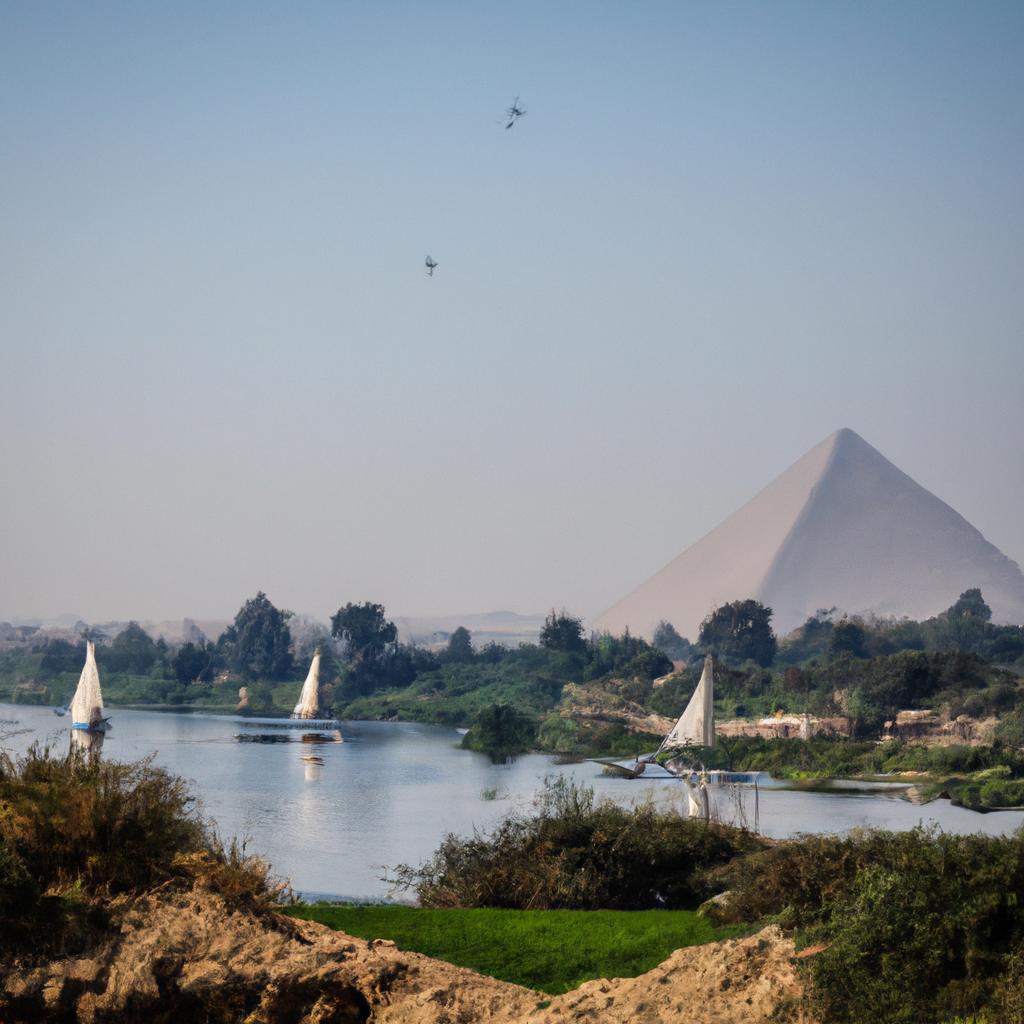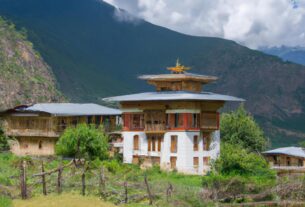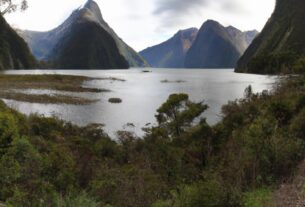Welcome to an extraordinary journey through one of the most iconic and significant rivers in the world – the Nile River. Flowing through eleven countries in Africa, the Nile’s majestic waters span over 6,600 km, making it the longest river globally. It serves as a lifeline, providing water and sustenance to millions of people in the region. The Nile’s historical and cultural significance is unparalleled, influencing civilizations for thousands of years. Today, it continues to be a vital resource for the countries it traverses.
The Nile River in Egypt
Egypt, synonymous with the Nile River, has relied on its waters for centuries. Acting as a primary water source, the river has been integral to Egyptian agriculture, transportation, and trade. In fact, many of Egypt’s most renowned landmarks and monuments stand proudly along the riverbanks.
Explore the ancient temples and pyramids that dot the Nile River, including the famous Valley of the Kings and the Luxor Temple. Embark on river cruises or felucca rides to witness the Nile’s breathtaking beauty and immerse yourself in its historical and cultural significance.
Nevertheless, Egypt faces challenges in preserving the Nile River. Pollution and overfishing pose threats to the river’s health and the communities that depend on it. Additionally, concerns loom over the Grand Ethiopian Renaissance Dam’s potential impact on Egypt’s water supply. Despite these obstacles, Egypt remains devoted to safeguarding the Nile, acknowledging its indispensable role in the nation’s past, present, and future.
The Nile River in Sudan
Sudan, a country situated at the confluence of the Blue Nile and the White Nile, heavily relies on the Nile River for water, agriculture, fishing, and transportation. The capital city, Khartoum, thrives as a bustling trade and commerce hub due to the river’s strategic location.
Sudan’s Nile River houses remarkable landscapes, notably the Sudd wetlands. These expansive wetlands serve as a haven for diverse flora and fauna, including endangered species like the white-eared kob and the Nile lechwe.
Undeniably, Sudan encounters challenges regarding the management and conservation of the Nile River. Conflict and instability have hindered effective conservation efforts, and large-scale infrastructure projects threaten the river’s delicate ecosystem. However, Sudan remains steadfast in its commitment to protect the Nile River, acknowledging its vital role in the country’s sustainable development.
The Nile River in Ethiopia
Ethiopia is a crucial custodian of the Nile River, as it claims its origin from the magnificent Lake Tana. The river courses through Ethiopia, providing water for agriculture, fishing, and power generation. As a testament to its commitment to renewable energy, Ethiopia is investing significantly in harnessing the Nile’s power, evident in the construction of the Grand Ethiopian Renaissance Dam, poised to be Africa’s largest hydroelectric power plant.
Venture along the Ethiopian Nile and witness awe-inspiring natural wonders. The Blue Nile Falls, cascading over a cliff in a magnificent display of water and mist, awaits your admiration. The river’s banks also boast a rich tapestry of wildlife, including hippos, crocodiles, and a plethora of bird species.
However, concerns persist about the potential environmental impact of large-scale infrastructure projects on the Nile’s ecosystem and the communities that depend on it. Ongoing disputes over the river’s management between Ethiopia and downstream countries like Egypt and Sudan emphasize the need for collaborative and sustainable development to secure the Nile’s future.
The Nile River in Uganda
Uganda, blessed by the Nile River’s bounties, offers a different array of experiences for intrepid travelers. Adventure tourism takes center stage, with opportunities for white-water rafting, kayaking, and bungee jumping. Hiking, birdwatching, and wildlife safaris in national parks along the river’s course appeal to nature enthusiasts.
Uganda’s Nile River exudes cultural and historical significance. Tribe upon tribe, kingdom after kingdom relied on the river for trade and transportation, creating a unique tapestry of traditions and local customs. Immerse yourself in the rhythms of traditional fishing villages and discover the rich heritage of the Banyankole and Basoga communities.
Nevertheless, Uganda confronts its own set of challenges in preserving the Nile River. Environmental issues such as pollution and overfishing imperil the river’s health and the communities it nurtures. The impact of large-scale infrastructure projects, such as dams, also demands careful consideration. Despite these obstacles, Uganda remains unwavering in its commitment to preserving the Nile’s vital importance to tourism, culture, and sustainability.
The Nile River in Tanzania
Prepare to be captivated by the Nile River in Tanzania, a must-visit destination for anyone exploring Africa. As the river meanders through this stunning country, it weaves through breathtaking natural landscapes, including the Ngorongoro Conservation Area and the Serengeti National Park. These havens harbor a multitude of wildlife, from majestic lions to towering elephants and graceful giraffes, providing unforgettable safari experiences.
Beyond its natural wonders, Tanzania’s Nile River is steeped in historical significance. Along its banks lies the Olduvai Gorge, an archeological treasure trove shedding light on early human evolution.
Fishing serves as a vital industry in Tanzania, with numerous communities relying on the Nile River for their livelihoods. However, sustainable fishing practices are gaining importance to protect the river’s delicate ecosystem, guaranteeing its bounty for future generations.
In conclusion, the Nile River is a lifeline for the countries it traverses, nurturing communities, and providing sustenance. Moreover, it serves as a vibrant cultural and environmental resource, inviting visitors to explore the region’s rich history and extraordinary natural beauty. Preserving and protecting the Nile River is paramount, ensuring its enduring legacy for both locals and the enthusiastic travelers eager to uncover its wonders.



